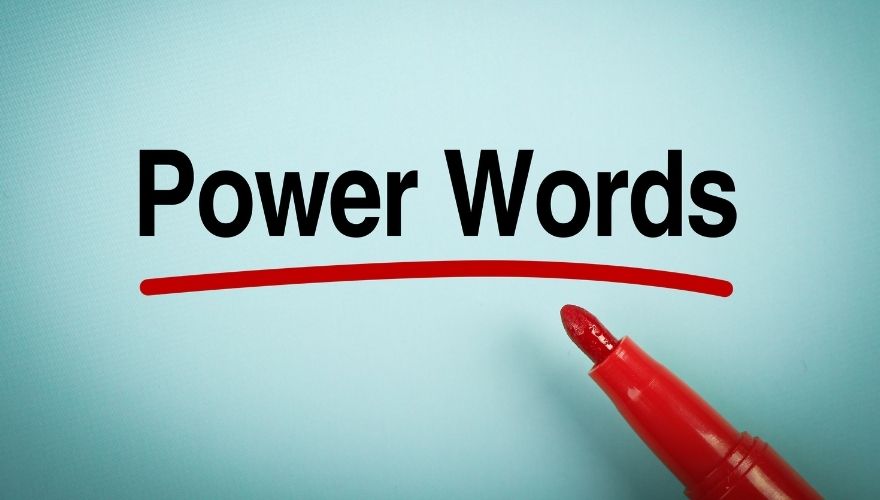With over 1.5 million nonprofits in the United States alone, how do you make your organization stand out from the rest when applying for a grant? Our Grant Writer Team experts and our founder and CEO, Libby Hikind, recommend using powerful positive words to make your grant proposal be placed on the top.
“Power words trigger emotional and psychological responses in readers. They can make the difference between funders wanting to support your organization or moving on and saying ‘NEXT!'” Hikind has written successful winning grants for over 25 years raising over 11 million dollars for one Brooklyn school district and a great deal more for private clients. “Positive power words can motivate people to become supporters or funders of your nonprofit. I recommend also using the same buzz words or similar language used by the funding source in their grant application, but not to the point where it seems that you don’t have anything original to say. It’s important to use active verbs, definitive words, and words that paint a picture and tell a story.”
This list of power words and buzz phrases compiled by Belinda Biscoe for successful grant proposals published by the College of Continuing Education, South Central Comprehensive Center at the University of Oklahoma, provides some great suggestions. www.sc3ta.org/knowledgebases/Successful_Grants/4_2_5_0/resources/great-buzz-words-to-use-in-a-grant-proposal-569.html?node=4_2_5_0
Here’s another list of some action verbs to use in grant proposals from www.elks.org.
Depending on the type of grant you’re looking for, whether it’s a research grant or a grant relating to early childhood education or funding for a homeless shelter, the recommended powerful word list you create may be different.
Nonprofit Hub recommended these 10 Power Words for effective copywriting that increases conversion rates. Here is yet another list of some top power words that apply to grant writing.
At the top of the list:
Vision, Envision, Imagine
Just as for getting people to donate or buy products, using the word “imagine” brings people into your story. It instantly paints a picture and allows them to see the potential, possible results their support could create. It allows them to move past their rational mind and think in terms of how the kind of difference they can make to bring about a better world.
Needs Assessment –
Target, objectives, goals — Grantmakers want to know, who you are targeting. What is your target population or target audience? What is your target goal?
Contribution or Making a difference –
funders want to make a difference. That’s why they do what they do. They want to see that the money they’re awarding has the maximum impact. Talk about the difference you make in real terms. Give examples of how their support will make a difference locally or globally.
Community –
Beverly D. Burgess the administrator for the Grant Writers of America group lists “community” as one of her top power words for the proposals she writes.
Investment –
One of the top concerns grantmakers have is how their money will be used, whether it will make a difference, and whether the difference will be substantial. Using the term “investment” changes the way people feel about the money they contribute and the effect it has. It’s not just a donation, it’s an investment in the future of a community, a target group, or making the world a better place.
You –
Using the word “you” brings it home to people that they’re involved. That we’re all connected and adds responsibility for being part of “the change they want to see in the world,” to quote Mahatma Gandhi. According to a study by Yale University’s psychology department, using the word “you” instantly addresses the reader and gets their attention”. It makes your request more personal, direct, and compelling.
Libby Hikind suggests starting your own powerful word list filled with positive action words you are comfortable with and keeping the one page at your fingertips for that moment in the writing process where you say, “I can’t t think of that word.” or ” What’s a better way to say that?” or I used that word a few times already – how can I say it better?”
If you are a grant writer, we have grant writing jobs for you. And if you are a grant seeker we have a place for you to request a grant writer for your grant proposal.
About the Author: The author is a staff writer for Grant Writer Team.

Recent Comments